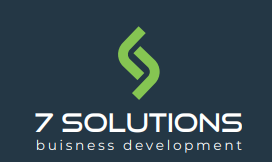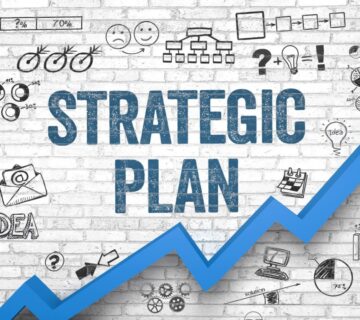🔷 Introduction: From Project Idea to Executable Reality
Many entrepreneurs in Saudi Arabia start their projects driven by passion or an inspiring idea, but 90% of projects that fail within the first 3 years share one reason: they were not based on a real feasibility study.
A feasibility study is not a marketing paper, nor just a formal requirement to secure funding; it is a strategic tool to understand the project’s reality and analyze its feasibility from all angles: financial, market, technical, legal, and managerial.
In this article, we will take you on a professional journey to understand:
• Why feasibility studies are crucial in the Saudi market
• Their types and key components
• Common mistakes in preparing them
• How “Seven Solutions” helps you prepare a realistic, actionable, and fundable feasibility study
⸻
Chapter 1: What is a Feasibility Study and Why is it Essential?
A feasibility study is a comprehensive assessment of a new project or an expansion, aimed at answering one question:
Is this project worth starting now? And why?
The study includes:
1. Idea and market analysis
2. Cost and revenue estimation
3. Technical study for operations and infrastructure
4. Risk analysis
5. Expected financial scenarios
6. Executive recommendations
When should you request a feasibility study?
• At the establishment or expansion stage
• For funding applications (bank, Kafala program, government funds)
• Before entering a partnership or franchise
• When evaluating a struggling project
• During exit or sale considerations
⸻
Chapter 2: Why is a Feasibility Study Important Specifically in the Saudi Market?
1. Rapidly changing market
• New regulations
• Government initiatives
• Entry of international players
• Evolving customer behavior
2. Funding entities require certified studies
• Banks and development funds (Kafala, Monsha’at, Development Bank) do not finance without a strong study
3. High operating costs and wrong decisions are expensive
• A small error in market or equipment estimation could result in losses of hundreds of thousands
4. Intense competition
• Opening a project is not enough; you need a realistic plan to outperform competitors
⸻
Chapter 3: Types of Feasibility Studies Used by Saudi Companies
Type Description When Used
📊 Financial Feasibility: Cost, revenue, capital, expected return analysis When seeking funding or evaluating profitability
🏗️ Technical Feasibility: Site selection, equipment needs, infrastructure For industrial and service projects
📈 Marketing Feasibility: Competitor analysis, supply and demand, target audience When entering a new market or launching a product
⚖️ Legal Feasibility: Licenses, regulations, legal constraints Health, education, or regulated activities
👨💼 Managerial/Organizational Feasibility: Organizational structure, required staff For companies requiring high-level organization or multiple departments
Chapter 4: Components of a Professional Feasibility Study
1. Executive Summary
• Provides an overview of the project (for senior management or funders)
2. Project Description
• Name, type, idea, competitive advantages
3. Market and Competitor Analysis
• Current gaps
• Customer behavior
• SWOT analysis
• Local trends
4. Operational and Technical Plan
• Equipment and technologies
• Internal structure
• Production or service capacity
• Partners and suppliers
5. Marketing Plan
• Customer outreach strategy
• Pricing
• Channels
• Proposed advertising campaigns
6. Managerial and Organizational Plan
• Organizational structure
• Required qualifications
• Hiring and training plan
7. Financial Analysis
• Required capital
• Revenue and expense projections for 3–5 years
• Break-even point
• Net profit
• Return on investment (ROI)
⸻
Chapter 5: Critical Feasibility Study Mistakes to Avoid
❌ Copying old studies without updating market data
❌ Overstating revenues and understating costs
❌ Using generic templates that do not reflect reality
❌ Not linking the study to the actual work environment
❌ Focusing solely on financials without operational or market aspects
⸻
Chapter 6: Actual Feasibility Studies for Successful Projects in Saudi Arabia
Example 1: Vocational Training Center in Riyadh
• Capital: 750,000 SAR
• Expected return in 2 years: 34%
• Approved for Monsha’at support after study approval
Example 2: Cold Storage Project for Food Products
• Study included supply chain analysis
• Recommended IoT technology for temperature monitoring
• Project received funding from the Development Bank
Example 3: E-commerce Store for Organic Products
• Target audience analyzed via Google Trends
• Study included influencer marketing and content strategy
• Expected return: 260,000 SAR in the first year
⸻
Chapter 7: How We Help at “Seven Solutions”
✅ Prepare a customized feasibility study for your project
✅ Accurate analysis of the Saudi market by sector
✅ Link the study with organizational structure and digital transformation
✅ Provide a ready file for funding entities
✅ Offer clear executive recommendations after the study
✅ Three months of advisory support post-delivery
We don’t just write studies… we share in the decision-making.
⸻
Chapter 8: Frequently Asked Questions
Can I get a feasibility study within a week?
Yes, for some small activities; medium projects require 15–21 working days.
Does the study guarantee funding approval?
No, approval cannot be guaranteed, but a professional study increases your chances by up to 80%.
Do you provide ready-made studies?
No, all our studies are based on customized analysis for each project.
Can you provide the study in both Arabic and English?
Yes.
⸻
✅ Conclusion: Don’t Start Your Project Without Reading This
In Saudi Arabia, a project without a feasibility study is like building a building without a foundation.
Even if it initially succeeds, it often cannot withstand crises or expansion.
A feasibility study is not just a document…
It is the investment mind of the project.
⸻
📞 Request a free consultation to evaluate your project feasibility:
📧 info@7solutions.sa
📱 9200XXXXXX
🌐 [Request Form]




لا تعليق